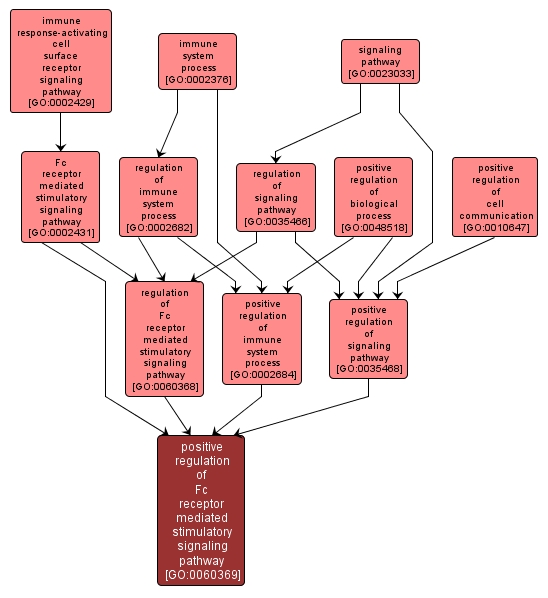| Desc: |
Any process that increases the rate, frequency or extent of the Fc receptor mediated stimulatory signaling pathway. The Fc receptor mediated stimulatory signaling pathway is a series of molecular signals generated as a consequence of a the binding of the Fc portion of an immunoglobulin by an Fc receptor capable of activating or perpetuating an immune response. The Fc portion of an immunoglobulin is its C-terminal constant region. |














